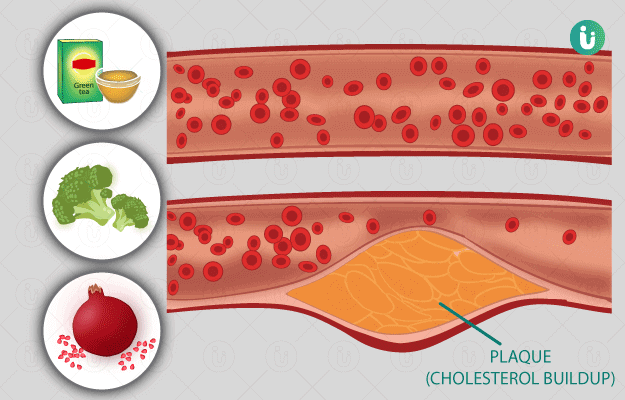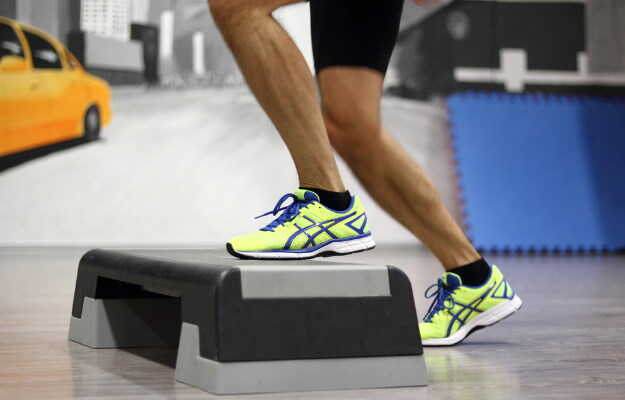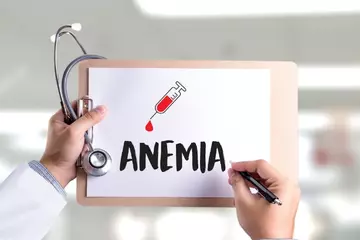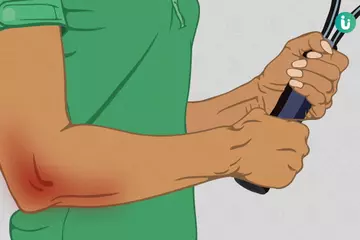What is Atherosclerosis?
Atherosclerosis is a condition affecting the arteries of the body, characterised by hardening and narrowing of the artery due to the accumulation of plaque in the arterial walls.
The wall thickens and, in turn, the artery is narrowed, causing reduced blood supply to the part of the body involved.
Please check this page for complete high cholesterol treatment.
What are the main signs and symptoms of Atherosclerosis?
- Early atherosclerosis does not show major symptoms. It is a slowly progressive disease and often goes unrecognised when incipient.
- The symptoms of atherosclerosis depend on the location of the affected arteries.
- Chest pain radiating to the left arm, shoulder or jaw (angina) occurs if the arteries leading to the heart have blockages.
- Pain and numbness in the limb if the atherosclerosis is in an artery of the limb.
- If atherosclerosis is in the arteries of the brain, symptoms such as confusion, headache, weakness in the limbs, impaired vision and dizziness are seen.
(Read More - Home remedies for atherosclerosis)
What are the main causes?
Atherosclerosis is attributed to factors related to lifestyle, diet and habits and certain medical conditions.
- Medical conditions like high blood pressure, high cholesterol and diabetes make a person more susceptible to atherosclerosis.
- Smoking, alcohol consumption, obesity and a sedentary lifestyle are risk factors.
- High-fat diet, or a diet with excessive sugar and salt are contributing factors too.
(Read More - High Triglycerides treatment)
How is it diagnosed and treated?
Diagnosis is based on the complaints of the patient, medical history and a physical examination. During a physical examination, the cardiologist checks the strength of the pulse and the heart rate and listens for any abnormal heart sounds.
Investigations for atherosclerosis include:
- Blood tests are done to assess levels of cholesterol, sugar, sodium and proteins.
- CT scan is performed to check for blocked arteries.
- An angiogram uses a dye to check for blockages.
- A Doppler ultrasound can also be used to locate a blocked artery.
- Other investigations include a stress test and ECG.
Treatment for atherosclerosis includes:
- Giving up smoking, exercising regularly, and eating a well-balanced diet are important lifestyle changes that improve the condition.
- Medications include anticoagulants, diuretics to lower blood pressure and cholesterol-controlling medicines.
- If the blockage is severe, a surgery like a bypass or an angioplasty is performed by the cardiac surgeon.
Home care for atherosclerosis:
- Avoid eating fatty foods and foods high in sodium. Include foods which are rich in protein.
- Exercise daily, for at least 30 minutes.
- Keep your stress levels in check and consult a doctor if you notice a sudden reduction in work efficiency.
(Read More - Cholesterol Test)

 OTC Medicines for Atherosclerosis
OTC Medicines for Atherosclerosis
 Atherosclerosis articles
Atherosclerosis articles
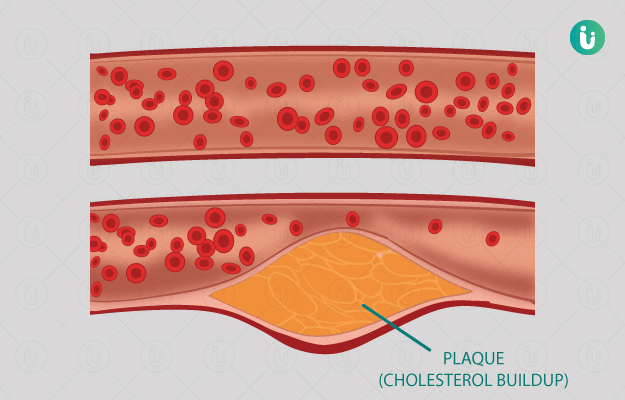



 Editorial Team
Editorial Team
